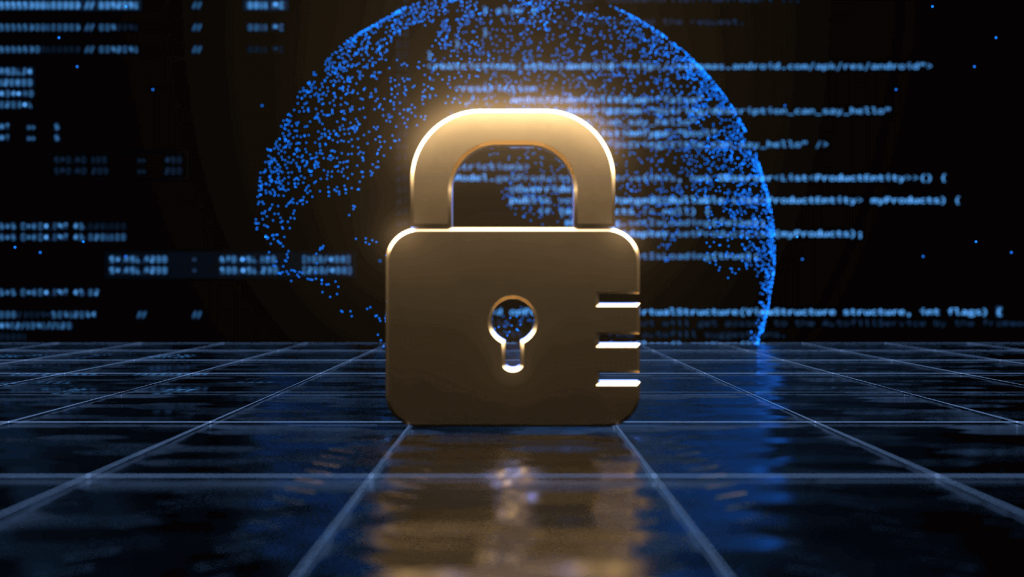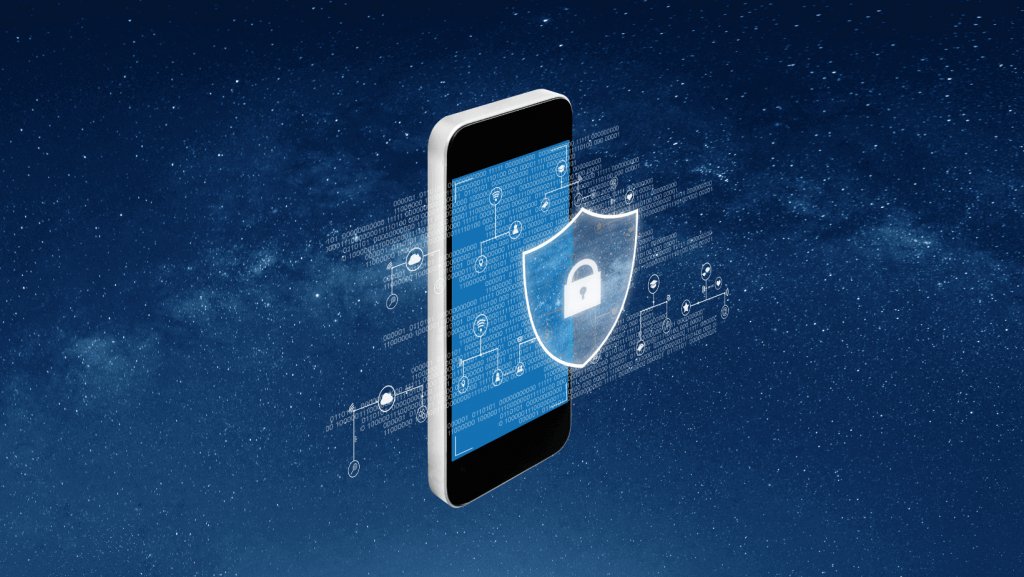Draft7 MISCONCEPTIONS ABOUT CYBERSECURITY.
Michael Pretorius
January 8, 2025

7 Misconceptions about cybersecurity. The enormous risk to your business and the cost of ignorance.
Internet security is probably one of the biggest challenges most businesses face today. With so many facets and risks, how much do you really know about internet security and can you distinguish between a half-truth and a real threat?
Cyber awareness needs to be part of every employee’s onboarding training when joining a new company as this area of any business is where you are most likely to be more at risk of being breached.
1. Cybersecurity is only a threat BIG businesses face; criminals don’t target SMEs.
One of the questions to ask yourself here is how important is your information to you, what is the implication of it leaking, and lastly, what are you willing to pay to reobtain access to it?
It is this exact myth that makes SMEs more prone to cyberattacks due to being less vigilant resulting in less internal education around the risks and lack of investment in cybersecurity software to help prevent or identify data breaches.
Cybercriminals rely on automated systems and processes and they are in many cases unaware of the size of your business, they’re only interested in how they can breach you and what they stand to gain from it.
2. A “strong password” is sufficient to keep your business safe.
Strong password practices are a good foundation and forcing those to be changed regularly, even better. This is however only the start.
Please don’t think for a moment that password hacking software isn’t evolving like everything else in the world. These are becoming increasingly smarter and faster by the day, capable of literally trying many millions of different password combinations in a space of seconds.
So to put it mildly, the correct combination could be only seconds away. Investing in solutions that make multiple-factor authentication possible is a good way to go.
There are however two sides to the coin in this case and what is of equal importance is to exercise stricter control internally as to the nature of information you make available and two whom. Strict data user access control is far from old.
3. Anti-virus software is adequate protection for your business.
While anti-virus software is extremely important to safeguard your business against specific threats, it won’t protect you against all threats.
It’s like obtaining insurance for the contents of your home and thinking you’re adequately covered, and then the oven stops working or the foundation on a major wall collapses. In this case, without the right insurance to cover the building, you’re in for quite the expense.
As with the insurance example, ensure you have a complete solution to security covering everything from threat detection to disaster recovery and more importantly, prevention in the form of investing in ongoing internal education for your employees.
4. The IT department has it “in hand” and will continue to take care of it.
This is a cybersecurity favourite. For many, there is nothing more satisfying than making something seemingly complicated, the next guy’s problem and you get to hold them accountable when something goes wrong.
The IT department is an integral part of any business and part of their responsibility is to ensure that there is a cyber protection strategy in place and that policies are implemented, monitored, and reviewed regularly. However, IT can’t control absolutely everything.
Imagine for a moment the danger of emails, a critical business tool you make available to 99% of your employees, and on average they spend at least 70% of a day using it, depending on the job role, of course. All it takes is one phishing email opened by an ignorant employee to subject your business to a serious cybersecurity threat.
5. You outsource it so it has to be taken care of adequately, right?
The question to ask yourself is, do you understand all the cybersecurity risks that exist and that are potential threats to your business, and how are they being addressed?
Once again, similar to the IT department there is only so much they can control, and just because they are responsible for implementing and reviewing cybersecurity policies doesn’t guarantee your safety. What are you doing internally to ensure the necessary security and protection of critical data is in place? Are you clear on the cybersecurity company’s roles, responsibilities, and obligations?
6. Cybersecurity threats are only external to your business.
External cybersecurity threats are of real and serious concern and shouldn’t be taken lightly. Adequate monitoring and protection measures should be put in place to combat these external cybersecurity threats.
In the 2020 Cyber Security Intelligence Index released by IBM, it was made clear that more than half of the cyber attacks businesses have suffered are internal.
The possible negligence and ignorance of employees shouldn’t be overlooked. Furthermore, businesses should put measures in place to monitor activity to protect against malicious activity from disgruntled employees.
7. Cybersecurity is expensive and cumbersome to deploy and support.
If you consider what is at stake, what you potentially stand to lose, the impact on the livelihoods of the people you employ, reputational damage, legal fees, fines for not complying with data protection legislation, and the potential security impact on people where personal data is breached, you will quickly realise how affordable and critical cybersecurity solutions are.
There are cybersecurity solution providers who make cybersecurity solutions more affordable and who have developed models that keep the SMEs pocket in mind.
Find cybersecurity solution providers that offer subscription models and monthly payment plans. Often during cybersecurity assessments and solution implementation, operational efficiencies are drastically improved which leads to substantial operational cost savings where essentially cybersecurity ends up paying for itself.
In summary, cybersecurity is here to stay, and it is becoming increasingly more advanced daily. Ensure that you do your utmost to secure your business against a potential cybersecurity attack. Educate your employees to be vigilant as their negligence is partly a reflection of how well you have equipped them. Ensure that you understand all the potential cybersecurity risks faced by your business and that you have adequate protection in place.
We offer free cybersecurity health checks and can tailor-make solutions to fit and secure your unique business, BIG or small.
Recent Posts
-
 Draft 4 Guidelines for Managing the Mobile Paradox10 Jan 2025
Draft 4 Guidelines for Managing the Mobile Paradox10 Jan 2025 -
 Draft From Vulnerability to Victory: Supply Chain Security for SMEs10 Jan 2025
Draft From Vulnerability to Victory: Supply Chain Security for SMEs10 Jan 2025 -
 Draft Data Breach Prevention and Response: Building an Effective Incident Response Plan10 Jan 2025
Draft Data Breach Prevention and Response: Building an Effective Incident Response Plan10 Jan 2025 -
 Draft Mobile Device Security: Protecting Your Data on the Go10 Jan 2025
Draft Mobile Device Security: Protecting Your Data on the Go10 Jan 2025
Our News & Videos
7 Misconceptions about cybersecurity. The enormous risk to your business and the cost of ignorance.
Internet security is probably one of the biggest challenges most businesses face today. With so many facets and risks, how much do you really know about internet security and can you distinguish between a half-truth and a real threat?
Cyber awareness needs to be part of every employee’s onboarding training when joining a new company as this area of any business is where you are most likely to be more at risk of being breached.
1. Cybersecurity is only a threat BIG businesses face; criminals don’t target SMEs.
One of the questions to ask yourself here is how important is your information to you, what is the implication of it leaking, and lastly, what are you willing to pay to reobtain access to it?
It is this exact myth that makes SMEs more prone to cyberattacks due to being less vigilant resulting in less internal education around the risks and lack of investment in cybersecurity software to help prevent or identify data breaches.
Cybercriminals rely on automated systems and processes and they are in many cases unaware of the size of your business, they’re only interested in how they can breach you and what they stand to gain from it.
2. A “strong password” is sufficient to keep your business safe.
Strong password practices are a good foundation and forcing those to be changed regularly, even better. This is however only the start.
Please don’t think for a moment that password hacking software isn’t evolving like everything else in the world. These are becoming increasingly smarter and faster by the day, capable of literally trying many millions of different password combinations in a space of seconds.
So to put it mildly, the correct combination could be only seconds away. Investing in solutions that make multiple-factor authentication possible is a good way to go.
There are however two sides to the coin in this case and what is of equal importance is to exercise stricter control internally as to the nature of information you make available and two whom. Strict data user access control is far from old.
3. Anti-virus software is adequate protection for your business.
While anti-virus software is extremely important to safeguard your business against specific threats, it won’t protect you against all threats.
It’s like obtaining insurance for the contents of your home and thinking you’re adequately covered, and then the oven stops working or the foundation on a major wall collapses. In this case, without the right insurance to cover the building, you’re in for quite the expense.
As with the insurance example, ensure you have a complete solution to security covering everything from threat detection to disaster recovery and more importantly, prevention in the form of investing in ongoing internal education for your employees.
4. The IT department has it “in hand” and will continue to take care of it.
This is a cybersecurity favourite. For many, there is nothing more satisfying than making something seemingly complicated, the next guy’s problem and you get to hold them accountable when something goes wrong.
The IT department is an integral part of any business and part of their responsibility is to ensure that there is a cyber protection strategy in place and that policies are implemented, monitored, and reviewed regularly. However, IT can’t control absolutely everything.
Imagine for a moment the danger of emails, a critical business tool you make available to 99% of your employees, and on average they spend at least 70% of a day using it, depending on the job role, of course. All it takes is one phishing email opened by an ignorant employee to subject your business to a serious cybersecurity threat.
5. You outsource it so it has to be taken care of adequately, right?
The question to ask yourself is, do you understand all the cybersecurity risks that exist and that are potential threats to your business, and how are they being addressed?
Once again, similar to the IT department there is only so much they can control, and just because they are responsible for implementing and reviewing cybersecurity policies doesn’t guarantee your safety. What are you doing internally to ensure the necessary security and protection of critical data is in place? Are you clear on the cybersecurity company’s roles, responsibilities, and obligations?
6. Cybersecurity threats are only external to your business.
External cybersecurity threats are of real and serious concern and shouldn’t be taken lightly. Adequate monitoring and protection measures should be put in place to combat these external cybersecurity threats.
In the 2020 Cyber Security Intelligence Index released by IBM, it was made clear that more than half of the cyber attacks businesses have suffered are internal.
The possible negligence and ignorance of employees shouldn’t be overlooked. Furthermore, businesses should put measures in place to monitor activity to protect against malicious activity from disgruntled employees.
7. Cybersecurity is expensive and cumbersome to deploy and support.
If you consider what is at stake, what you potentially stand to lose, the impact on the livelihoods of the people you employ, reputational damage, legal fees, fines for not complying with data protection legislation, and the potential security impact on people where personal data is breached, you will quickly realise how affordable and critical cybersecurity solutions are.
There are cybersecurity solution providers who make cybersecurity solutions more affordable and who have developed models that keep the SMEs pocket in mind.
Find cybersecurity solution providers that offer subscription models and monthly payment plans. Often during cybersecurity assessments and solution implementation, operational efficiencies are drastically improved which leads to substantial operational cost savings where essentially cybersecurity ends up paying for itself.
In summary, cybersecurity is here to stay, and it is becoming increasingly more advanced daily. Ensure that you do your utmost to secure your business against a potential cybersecurity attack. Educate your employees to be vigilant as their negligence is partly a reflection of how well you have equipped them. Ensure that you understand all the potential cybersecurity risks faced by your business and that you have adequate protection in place.
We offer free cybersecurity health checks and can tailor-make solutions to fit and secure your unique business, BIG or small.
Find It. Fix It. Secure It…FAST!